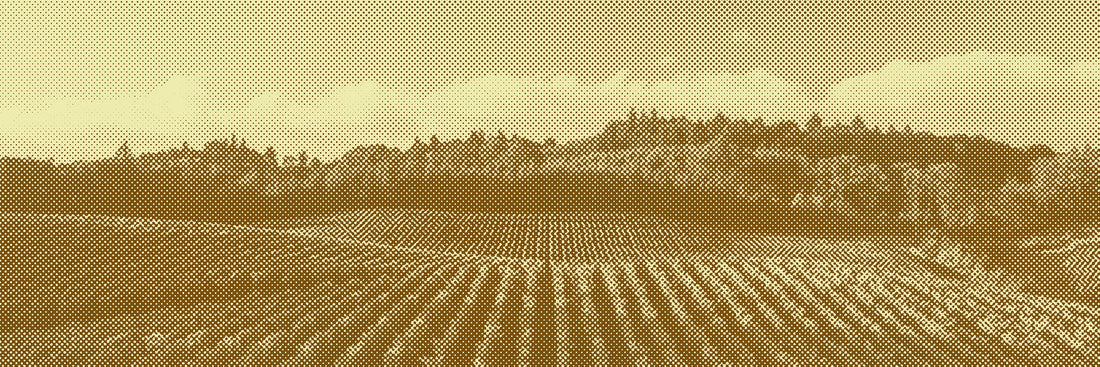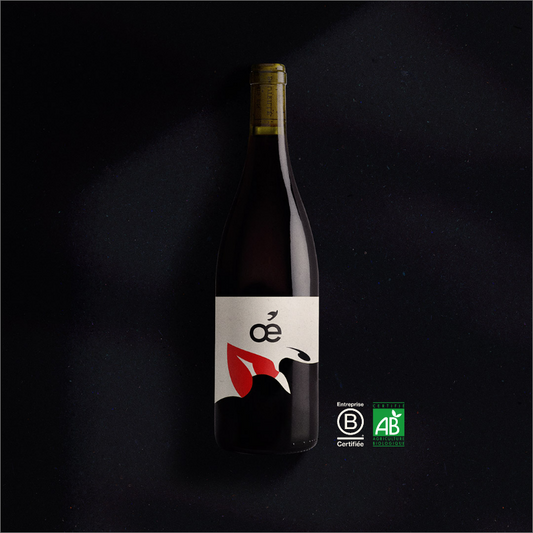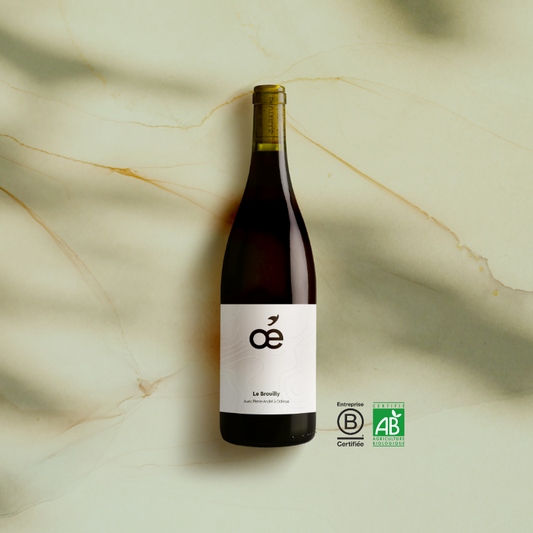Hello everyone, it's Sophie from Oé!
In the summer of 2024, we purchased our first wine domain, Domaine Oé de la Chapelle Saint-Pierre . We produce Côtes-du-Rhône and IGP Méditerranée on these 6 hectares in the Rhône Valley. We work with the former owners, Élise and Yann, as well as with Christian, our winemaker.
We wanted to become producers, to have our feet firmly on the ground, to better support and assist our partner winegrowers and contribute more concretely to the future of the vine.
Beyond the good intentions, this immersion in the daily life of a farmer had some surprises in store for us!
-
The fees requested by Safer
The role of the Safer (Land Development and Rural Establishment Companies) is to regulate the agricultural land market . They can intervene when land is sold by using their right of pre-emption to guarantee the common interest, in particular preserving agricultural land and its accessibility to young farmers. Often, they simply supervise land transactions and receive a commission, which is their main resource.
To purchase our estate, we went through the local Safer (Regional Agency for the Protection of the Environment). We discovered a real mess of red tape that probably doesn't help either farmers or Safer in its necessary mission of regulating the market.
-
The customs assembly of our file
Buying a domain also means discovering the joys of the CVI. Wine companies must register their business with customs, in the Computerized Wine Register . So far, it seems simple, except that we had to go through a lot of discussions with the services to find the right combination (because there are lots of different CVIs, producer, harvester, merchant, etc.) that we still ended up changing a few months later!
In the first scheme recommended by customs, we had a harvesting CVI to be able to sell the grapes and a wine merchant-winemaker CVI to vinify and sell our wine, all for the same company which therefore had to buy its own grapes (with all the customs declarations that go with it). It took us a long time to find the right way of operating!
-
Help desks
Our goal in purchasing this estate is to enable its bio-agroecological transition and to make it a welcoming and training center open to all . To achieve this, we sought funding after carrying out an agroecological diagnosis and a soil analysis.
It's true that we didn't make things easy for ourselves with a domain straddling Vaucluse (therefore Provence-Alpes-Côtes d'Azur) and Drôme (therefore Auvergne-Rhône-Alpes) but domiciled in the Rhône. We were still surprised to discover that there was no rule common to all the players. Should we contact the structures of the territory where the vines are located or the structure that operates them? Each player has their own guidelines that can vary depending on the request... and I haven't yet managed to get the overall picture.
-
Aid that farmers do without for simplicity
We hesitated for a long time whether or not to declare ourselves as active farmers with the MSA (Mutualité Sociale Agricole), the main interest being to be eligible for a certain number of aids, in particular the CAP , the FEADER or France AgriMer . In the end, we did not do it, but it was an opportunity to discuss it with winegrowers who explained to us that they did not apply for certain aids whose application is too tedious.
-
The first declarations to customs
There are a lot of declarations to make when producing and selling wine. Harvest declarations, monthly summary declarations, DREVs (French Wine Tax Returns )... it can be a bit overwhelming at first. It's not just about meeting the various deadlines, but also understanding how to complete the requested information. The customs services were a great help in navigating the acronyms and wine nomenclature.
-
First contacts with the MSA
In the digital age, our initial exchanges with the MSA did not go as expected. No fewer than three files were opened, on behalf of the real estate company (which purchased the estate), the SCEA (which operates it), and one of the co-founders of Oé (the real estate company's manager), to which it was only possible to respond by mail.
The first requests are sent to us before the final purchase of the domain, and therefore before having all the requested information. We are advised to respond as they come in with the answers we have, even if it means responding in 5 letters rather than just one at the end.
-
The importance of weather
It seems obvious, but it's something else to experience it in the context of your job! We had to review the planned technical itinerary because our first sowing work for cover crops could not be done during the desired period due to unpredictable weather... Instead of the cover crops planned for winter 2024, we therefore planned spring cover crops based on fodder radish and spring fava beans, which will complement the first contributions of compost, elemental sulfur and Patentkali.
-
The diversity of skills required
We chose to take over a small estate to facilitate our skill development, even if the required knowledge remains diverse. From understanding the terrain to choosing the right truck model to deliver the compost to legal knowledge, the scope is very broad! Big up to all our partner winegrowers and farmers in general who experience all this on a daily basis. We're just getting started, but they've been living it forever.
-
Complexity itself (especially) when you want to do well
It hasn't always been easy to make the right decisions, especially since the results are quite long-term. For example, we want to implement biodiversity monitoring on the estate to report on the relevance of the actions implemented. There are many options: low-tech protocols developed by the agricultural biodiversity observatory (OAB), monitoring by eco-acoustics, interventions by naturalists... It's often a matter of returning to the objectives set, but it's not that easy ;)
-
The fact that everyone was telling us "it must be crazy"
We've talked a lot about our first estate, both in our professional and personal spheres. I found it impressive that the vast majority of people we spoke to reacted very positively when you consider the difficulties facing the agricultural world. And even if the wine industry is doing a little better, the challenges are immense (rising temperatures, drought, etc.). Proof that it remains a sector, a profession apart, that is particularly inspiring!
I hope you like this format, please let us know by writing to us at hello@oeforgood.com .
See you soon,
Sophie





